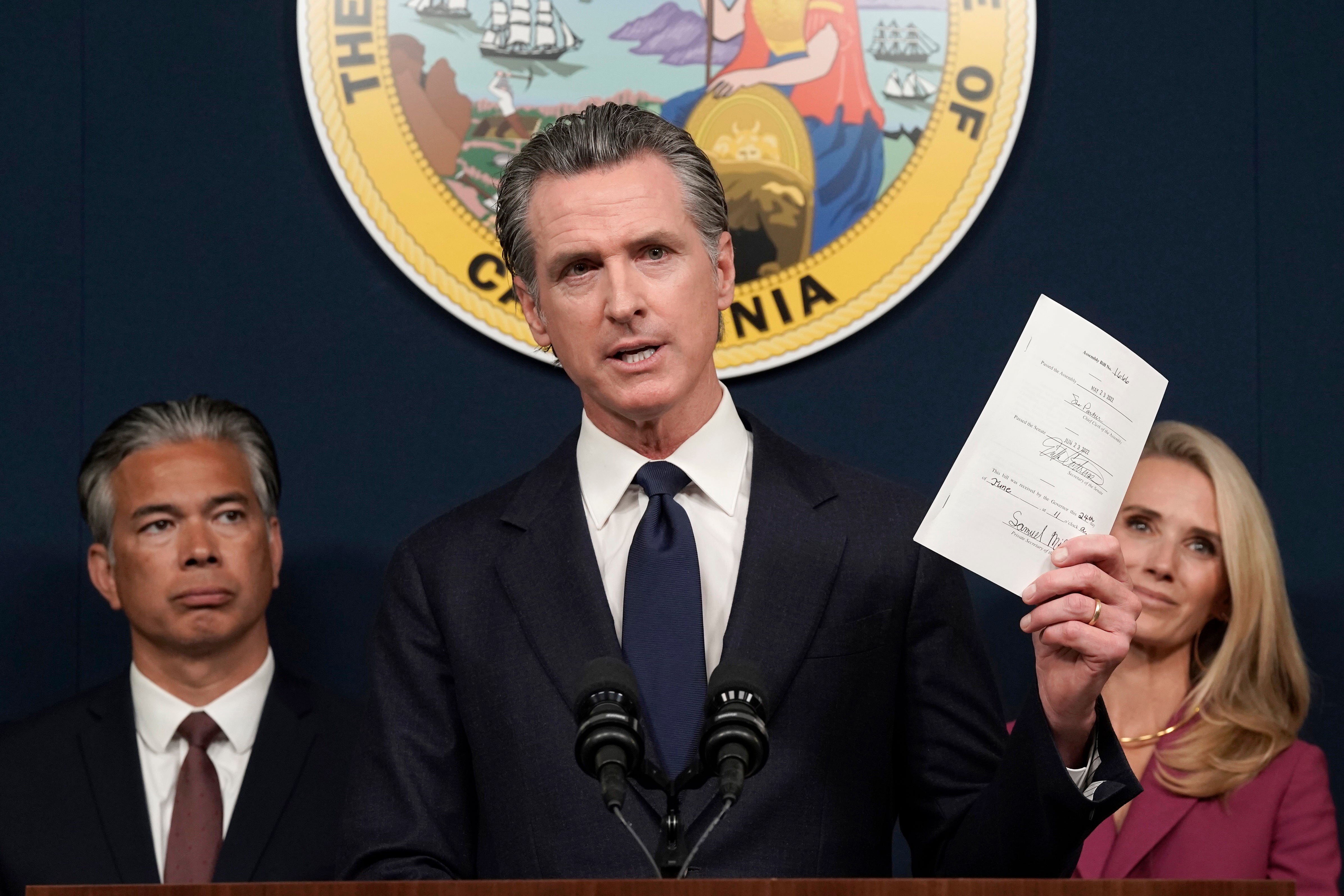California governor pardons abortion activist from 1940s
Gov. Gavin Newsom has posthumously pardoned an abortion activist from the 1930s and 1940s

Your support helps us to tell the story
From reproductive rights to climate change to Big Tech, The Independent is on the ground when the story is developing. Whether it's investigating the financials of Elon Musk's pro-Trump PAC or producing our latest documentary, 'The A Word', which shines a light on the American women fighting for reproductive rights, we know how important it is to parse out the facts from the messaging.
At such a critical moment in US history, we need reporters on the ground. Your donation allows us to keep sending journalists to speak to both sides of the story.
The Independent is trusted by Americans across the entire political spectrum. And unlike many other quality news outlets, we choose not to lock Americans out of our reporting and analysis with paywalls. We believe quality journalism should be available to everyone, paid for by those who can afford it.
Your support makes all the difference.Gov. Gavin Newsom on Friday posthumously pardoned an abortion activist from the 1930s and 1940s, acting days before Californians finish voting on whether to enshrine increased protections in the state Constitution in response to a recent U.S. Supreme Court decision.
Laura Miner was convicted in 1949 of abortion and conspiracy to commit abortion. She was sentenced to four years in prison on the twin felonies, and died in 1976.
“I can still hold my head up, and I respect myself because my conscience is clear," she wrote while serving her prison sentence. "I have helped humanity — someday it will be legal for a doctor to help a woman who will then have a right to decide for herself how many children she shall have, and when.”
Her statement proved prescient, for a time. The U.S. Supreme Court in the landmark Roe v. Wade decision ruled in 1973 that protections under the U.S. Constitution included the right to have an abortion.
But a majority of the high court earlier this year said that is up to individual states. Increased protections also are before voters next week in Michigan and Vermont, and restrictions in Kentucky and Montana.
Newsom, a Democrat who is actively supporting the proposed constitutional change, in a statement called Miner “a powerful reminder of the generations of people who fought for reproductive freedom in this country, and the risks that so many Americans now face in a post-Roe world."
The No on Prop 1 campaign did not directly comment on Newsom's pardon, but said in a statement that the governor hopes the measure “will work for him politically, " while expanding abortion rights would “ultimately be dangerous for California women.”
California's original 1850 Constitution criminalized abortions, but Miner was among those who provided them at a time when abortion was still illegal in California except when necessary to protect a woman’s life. She did so in San Diego from 1934 to 1948, until she and her staff were arrested.
She was convicted in San Diego Superior Court in 1949 and starting at age 50 served 19 months in prison and 27 months on parole.
Miner provided health care to patients on a sliding fee scale, using payments from her wealthy and sometimes famous clients to cover the indigent. She was a licensed chiropractor, according to an online account by her granddaughter, who called her “eccentric, stubborn and always independent.”
The Journal of American History said she ran a nine-room abortion clinic and was part of the Pacific Coast Abortion Ring in 1935 and 1936.
Miner was arrested after an investigator for the district attorney’s office kept her clinic under surveillance for nearly three months, according to her unsuccessful appeal of her conviction. He even attempted an early wiretap, entering the clinic at night with the intent to install a dictaphone.
When she was young, she saw her mother nearly die from a botched illegal abortion. Her mother then died when she was 9, according to Newsom's office, leaving behind Miner and seven siblings. She had four children herself, two of whom died of illness as infants.
"Ms. Miner gave women a safe alternative in a dark era for reproductive rights," Alicia Gutierrez-Romine, a professor of history at La Sierra University in Riverside, California and a historian on the history of medicine, said in a statement.